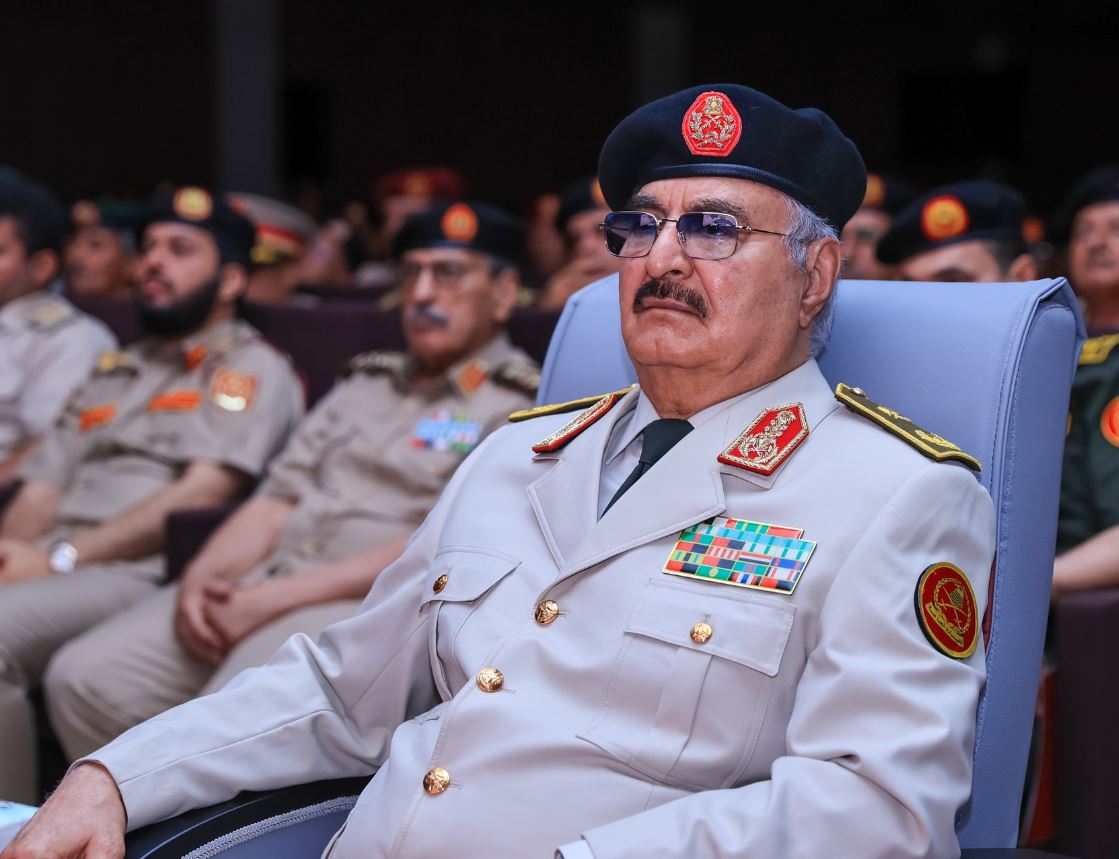The general Khalifa Haftar, strongman of the eastern region of Libya, has sent a delegation of officers to Russia to train in flying MiG-29 fighters, but at the same time is trying to diversify its partners militar looking at Belarus.
Secondo Jalel Harchaoui, expert analyst on Libya at the Royal United Services Institute (Rusi), the official visit of the commander of the Libyan National Army (LNA) to Minsk responds to the need to demonstrate that Moscow is not his only ally. “Despite the return of the Trump administration, the Pentagon continues to put pressure on Haftar to distance himself from Russia, if he wants greater military cooperation and recognition from the United States,” Harchaoui explained to “Agenzia Nova”.
The “Russian question,” he added, “remains delicate even after the Democrats have left the scene.” For this reason, the Cyrenaican general feels the need to demonstrate that he has other interlocutors for training, spare parts and military supplies. The only available candidate, the analyst stressed, seems to be Belarus, which today “functions more like a vassal state of Russia than as a truly independent entity.” However, the Haftar family hopes to “represent Minsk as an entity separate from the Kremlin, giving the impression that Moscow is not the only military support of the LNA.” Emadeddine Badi, an analyst at the Global Initiative Against Transnational Organized Crime, has a completely different opinion, according to whom Belarus is a mere “satellite of Russia” that serves “as an extension” of Moscow’s geopolitical aims. “Belarus, a loyal Russian satellite, has long been an extension of Moscow’s geopolitical ambitions and its engagement with Haftar is no exception,” Badi explained to “Nova.”
The statements of the two experts coincide with Haftar’s official visit to Minsk, where leader Alexander Lukashenko, considered one of Putin’s most loyal allies, expressed his willingness to deepen cooperation with Libya. The Belarusian leader declared that his government is ready to “provide all possible support” to the forces of the Libyan general. “The official visit of the Haftar family to Minsk underlines the willingness to carry out a review of the cost-benefit assessment that may arise from a deepening of ties with Russia, especially in light of the installation of the Trump administration in the United States, which does not seem to be inclined to challenge Moscow’s influence in Libya,” Badi noted. At the same time, in Cyrenaica, the Foreign Minister of the Government of National Stability, Abdelhadi al Hweij, chaired a meeting of the organizing committee of the Libyan-Russian Economic Forum, a sign of the continued desire to strengthen ties between Benghazi and Moscow.
Haftar’s arrival in Minsk comes at a significant time for Libya. While Tripolitania celebrated the 14th anniversary of the February 17 Revolution on Monday, eastern Libya did not hold any commemorative events: the east of the country is dominated by political currents opposed to some of the revolution’s outcomes, while the west continues to reclaim its original Islamist-inspired spirit. In parallel, Republican Senator Joe Wilson called on Haftar “not to make a serious mistake” by allowing a further expansion of the Russian presence in Libya, in particular through “new naval bases” for Moscow. Wilson’s appeal, published in a series of posts on X, reflects growing concerns in Washington and Western partners about the strengthening of Russian military infrastructure in areas under LNA control. Several sources indicate that Moscow has transferred advanced equipment from its bases in Syria to military installations located in Cyrenaica and Fezzan, a sign of a consolidation of its military presence in the North African country.
Wilson was a co-sponsor of the Libya Stabilization Act, which was passed by the US House of Representatives in the fall of 2023. The measure authorizes Washington to impose sanctions against foreign entities that support armed groups in Libya, if the Government of National Accord collapses or the ceasefire is compromised. Meanwhile, a group of 15 to 20 LNA officers are in Russia for three months of training on MiG-29s, Libyan media platform Fawasel Media reported. The operation is part of military cooperation between Moscow and Benghazi, which has seen a strengthening of the LNA’s air capabilities. In November 2022, the LNA General Staff published images of Russian MiG-29s at Al Jufra air base, one of the strategic assets under the control of Haftar’s forces. The images also showed the presence of senior LNA figures, including Air Force commander Muhammad al Manfour and the general’s sons, Saddam and Khalid Haftar, both brigadier generals and respectively chief of staff of the Ground Forces and commander of the LNA Special Forces.
Read also other news on Nova News
Click here and receive updates on WhatsApp
Follow us on the social channels of Nova News on Twitter, LinkedIn, Instagram, Telegram
